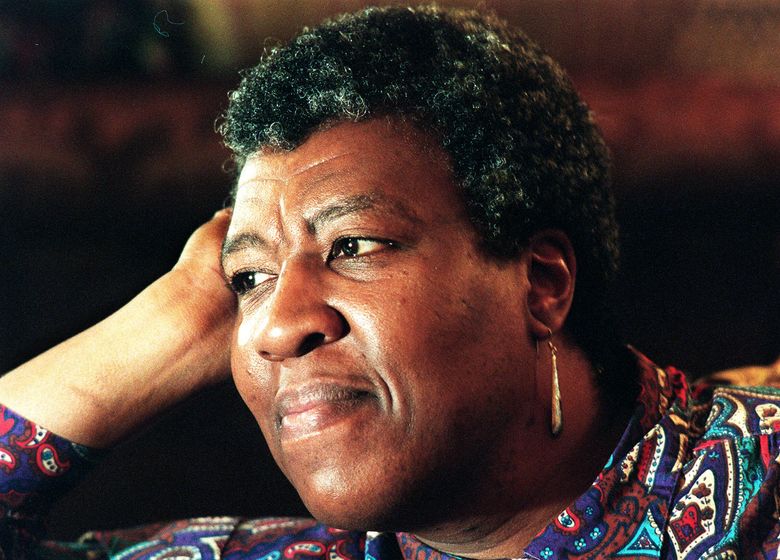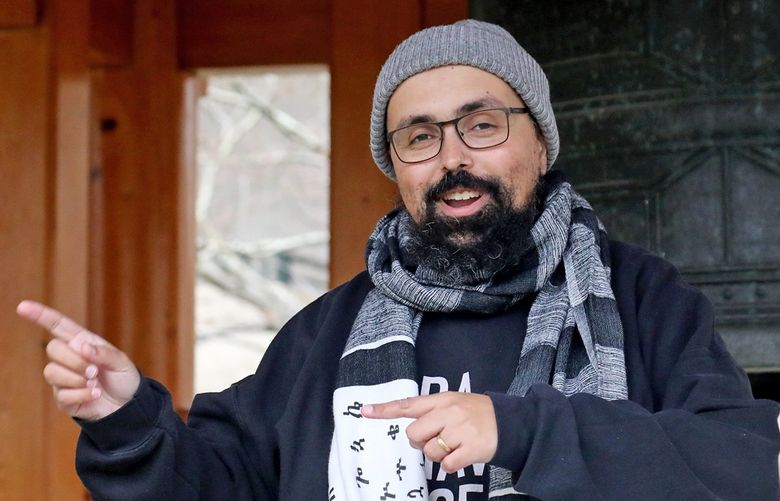“The stories we tell can either reflect the society we are a part of or transform it. If we want to bring new worlds into existence, then we need to challenge the narratives that uphold current power dynamics and patterns.”
-adrienne maree brown, Octavia’s Brood
For the 2022-2023 academic year, Community Reads will be focusing on the anthology Octavia’s Brood: Science Fiction Stories from Social Justice Movements, with an overarching theme of visionary fiction. Walidah Imarisha defines visionary fiction as “science fiction that has relevance toward building new, freer worlds . . . Visionary fiction encompasses all of the fantastic, with the arc always bending towards justice. We believe this space is vital for any process of decolonization, because the decolonization of the imagination is the most dangerous and subversive form there is: for it is where all other forms of decolonization are born.” After years of collective trauma and shared grief and burnout, amidst crises of war, natural disasters, a pandemic, and systemic injustice, we hope our community will take up this challenge of dreaming differently, transforming our minds, and imagining a different, more just world.
Each quarter, we will be focusing on a different short story from the text, as well as framing words by editors Imarisha and adrienne maree brown, to explore the unique ways that these authors are dreaming the world. Our Winter 2023 short story is “Hollow” by Mia Mingus, a story of a group of disabled people who have struggled against existential threats to form a community built on and around principles of disability justice and community care. In addition to this short story, we will also be reading the introduction to Octavia’s Brood by Walidah Imarisha and the outro by adrienne maree brown, for an understanding of the principles of visionary fiction that will animate our work throughout the year. Further information about the story and authors can be found below.
We are planning to hold a synchronous discussion event to discuss the story, our themes, and our visions for our campus and our world. Event details will be posted here as they are available! In addition to our event, we are welcoming submissions to our Community Reads Visionary Fiction anthology site. You can read more about this project below or at the site itself.
Contact members of the team via email with questions, comments, or concerns:

Join us for a hybrid discussion event!
Date: Tuesday, February 28th
Time: 12:00-1:30 PM
Location: LB1-205 (library building, second floor) or Zoom (registration link here)
Join us for snacks, a discussion of Octavia’s Brood, and an opportunity to dream collectively about how to reimagine our world. Our readings for this quarter can be found below, but you're welcome to attend whether you've read all, some, or none!
Food will be provided, but out of care for your community members, we request that you wear a mask when not eating. Free disposable masks can be found at the entrance to the library.
Let’s dream a new world together!
This event is subject to all UW protocols regarding preventing the spread of COVID-19. All attendees are expected to comply with the university's vaccination requirements. If you are experiencing any COVID-19 symptoms, please stay home and avail yourself of our remote option.
We are thrilled to announce that for the rest of the academic year, we will be accepting community submissions to our Community Reads Visionary Fiction site. Inspired by the project of Octavia’s Brood, we hope to engage in a similar creative effort in our own community, our own intervention in the world. On our site, you may submit your own visionary writing – fiction or poetry or nonfiction; under your name, a pseudonym, or anonymously – and share it with your fellow community members. We hope that this site will provide a space for our own collective community dreaming, in which we imagine a better world – together. To learn more about this project, how to submit, and what open work is, please visit the “Share” page of the site. We hope you will feel inspired to write some visionary work of your own or be inspired by your fellow community members' submissions.
 Octavia’s Brood: Science Fiction Stories from Social Justice Movements edited by adrienne maree brown and Walidah Imarisha. E-book available in the UW Libraries catalog. UW NetID required for access (for Cascadia community members who do not have a NetID, please visit the CC Computing Services NetID website to get started).
Octavia’s Brood: Science Fiction Stories from Social Justice Movements edited by adrienne maree brown and Walidah Imarisha. E-book available in the UW Libraries catalog. UW NetID required for access (for Cascadia community members who do not have a NetID, please visit the CC Computing Services NetID website to get started).
For Fall Quarter, we will be focusing on the short story “Hollow" by Mia Mingus. In the aftermath of revolution and state-organized killings, a group of disabled people have been sent away from Earth for forced separation, where they have formed Southing, a community whose inhabitants work with and care for another. But the past they have escaped is not far behind, and when they receive a mysterious message from Earth, their leaders must make a decision about their future. This story provides a vision of a community built on and around principles of disability justice, access, and care.

Mia Mingus is a writer, educator and trainer for transformative justice and disability justice. She is a queer physically disabled korean transracial and transnational adoptee raised in the Caribbean. She works for community, interdependence and home for all of us, not just some of us, and longs for a world where disabled children can live free of violence, with dignity and love. As her work for liberation evolves and deepens, her roots remain firmly planted in ending sexual violence. (from https://leavingevidence.wordpress.com/about-2/)

“adrienne maree brown grows healing ideas in public through her multi-genre writing, her music and her podcasts. Informed by 25 years of movement facilitation, somatics, Octavia E Butler scholarship and her work as a doula, adrienne has nurtured Emergent Strategy, Pleasure Activism, Radical Imagination and Transformative Justice as ideas and practices for transformation. She is the author/editor of seven published texts and the founder of the Emergent Strategy Ideation Institute, where she is now the writer-in-residence.” (from https://adriennemareebrown.net/book-me/)

“Walidah Imarisha is an educator, writer, public scholar and spoken word artist. She has co-edited two anthologies, Octavia's Brood: Science Fiction Stories From Social Justice Movements and Another World is Possible. Imarisha’s nonfiction book Angels with Dirty Faces: Three Stories of Crime, Prison, and Redemption won a 2017 Oregon Book Award. She is also the author of the poetry collection Scars/Stars, and in 2015, she received a Tiptree Fellowship for her science fiction writing.” (from https://www.walidah.com/home-1)

Image Credit: Milbert Orlando Brown/KRT
